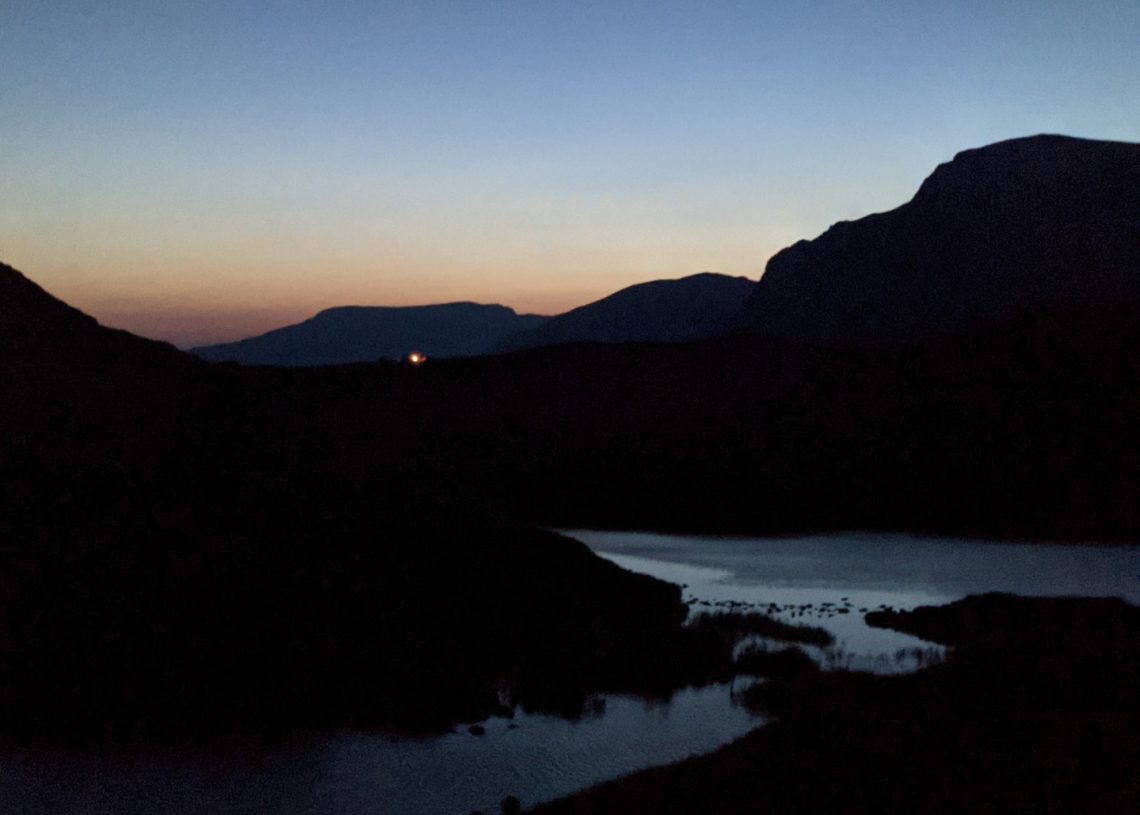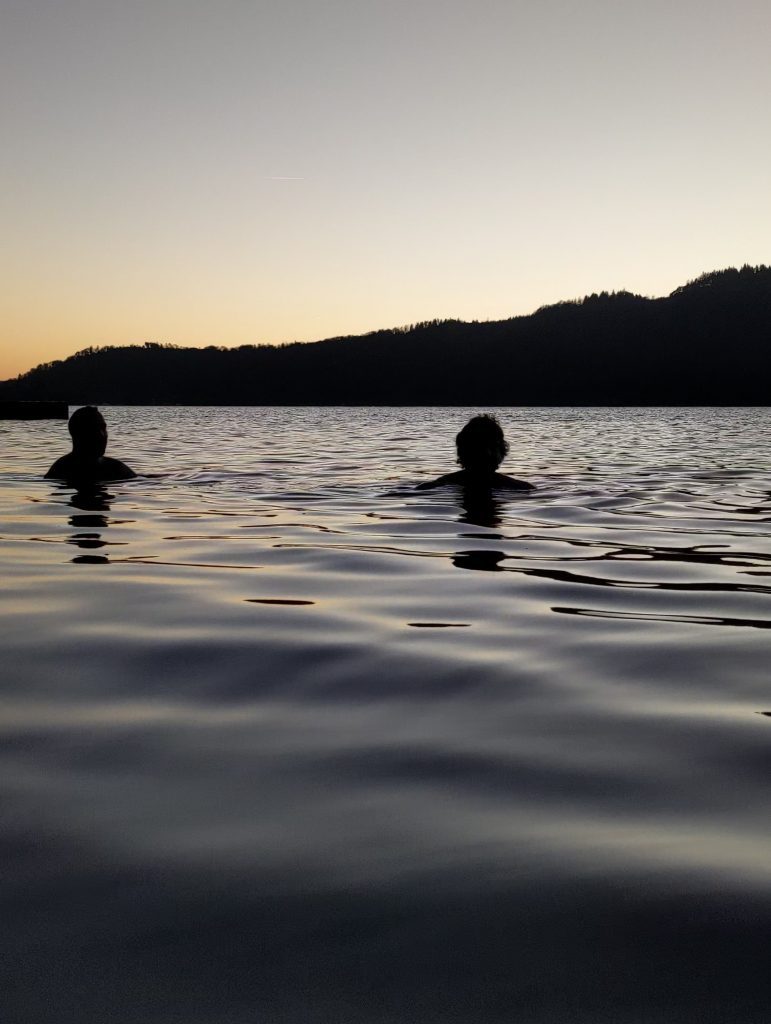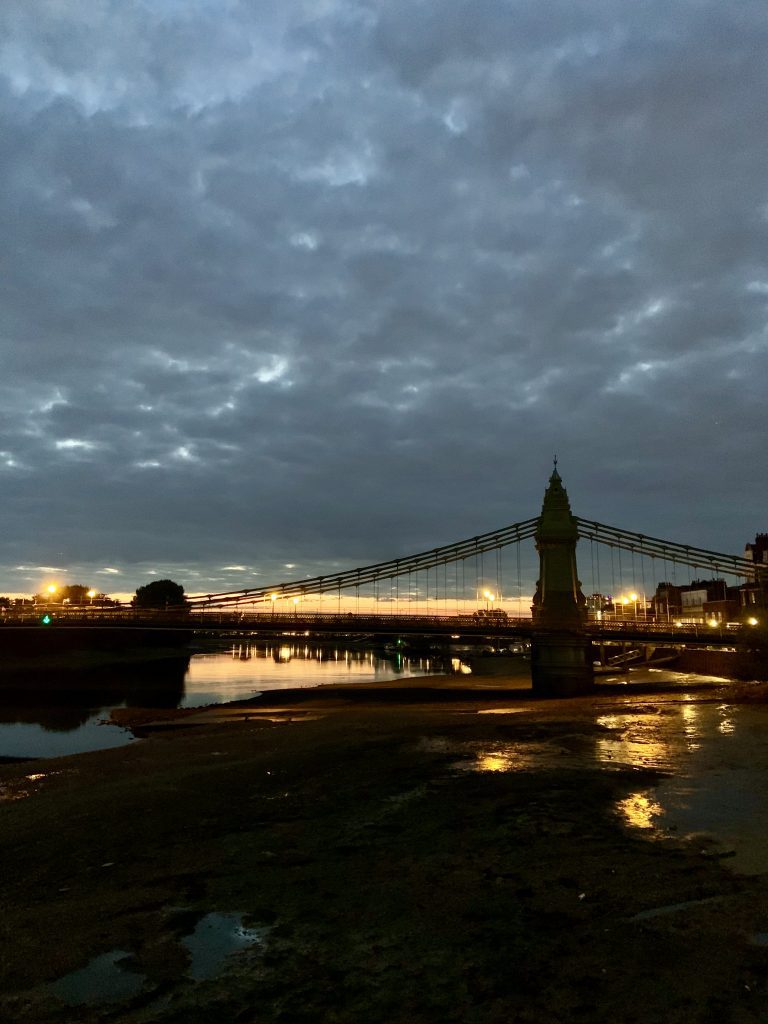
Open water skill: Night swimming
Exploring the world by night is a sensory overload. Robbed of sight, our other senses come to the fore: the hoot of an owl in the woods by the shore, the touch of the breeze against your skin, the smell of woodsmoke drifting across the lake. Jonathan Cowie explores this enchanting – and for long-distance swimmers, often unavoidable – open water skill.
“Look at the stars! Look, look up at the skies! O look at all the fire-folk sitting in the air! The bright boroughs, the circle-citadels there!” Gerard Manley Hopkins
Night swimming awakens something primeval in us. As night falls it is human nature to repel the darkness with fire and lights; but under the cover of darkness is also when we come out to play. Strip off and enter the magic kingdom of the night.
Plunging into cold water at night is to strip away the insignificances of modern life. Hanging in Windermere on a winter night, the Milky Way spread across the sky above and reflected in the dark waters around us, we are awestruck into silence.
There are many reasons to swim at night: for the experience; for necessity; for training. Full moon and solstice swims are rituals that all outdoor swimmers should experience: a celebration of light as we slip into the darkness, a swim to the music of time. And with these short winter days, our opportunities to swim become fewer. Sometimes we have no choice but to get our cold-water fix under cover of darkness.


“A torch inside a tow float will gently illuminate your swim”
If you are lucky to live somewhere without light pollution, intensify the experience by keeping your own lights to a minimum. If you can do so safely, walk to your swim spot by the light of the stars or the moon; it helps if you swim somewhere known to you. Robbed of sight and with your other senses to the fore, the water can feel colder as you submerge yourself. You aren’t here to swim long distances, this is all about the experience. A torch inside a tow float will gently illuminate your swim and make sure you are visible from the shore. It is easy to become disorientated in the dark, so it is a good idea to light up your exit point.
Swimming at night is also a key skill for marathon swimmers tackling long distance swims. English Channel swims often start in the dark, so swimmers must be used to swimming at night. The early hours in the Channel are an otherworldly experience: pilot boats festooned with lights like a fairground ride, ferries and tankers lit up like small cities floating above the surface of the water, and through the darkness swims the solo swimmer, illuminated only by a single light strapped to the back of their goggles.
Whether solo or with friends, a wild swim under the cover of darkness is a ritual that helps stave off the winter blues. Dive into the magical realm of the night!
This is a feature from the December issue of Outdoor Swimmer. Read more Outdoor Swimming features online.









